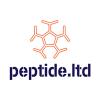Thank you very much Remington!

Lostfalco's Extensive Nootropic Experiments [Curated]
#2941
Posted 07 March 2016 - 03:18 AM
#2942
Posted 07 March 2016 - 04:23 AM
#2943
Posted 07 March 2016 - 05:14 AM
I've only used a few nootropics before, including LLLT. After reading the studies and watching that video I decided to try the intranasal insulin, so I bought some Novolin R today. It just came in a vial for intravenous use but I'm hoping that I can still use it as an intranasal spray. I'm planning to buy one of these to use with it http://www.mountains...CFdgRgQodQcUJUg. Going to use 10 IU since that's what seems to be used in most studies. Anything I should know Lostfalco?
Hey Yume, you've got it right. We are taking the intravenous insulin intranasally. Novolin R is what I've been using. It was used in the study linked below (I usually try to copy a study or studies as closely as I can).
I've been using this nasal spray bottle from Ceretropic. http://www.ceretropi...noopept-spray/
I used up the last of the Noopept, cleaned the bottle thoroughly, poured in the insulin, and stored it in the fridge. That's basically all there is to it. I liked the Ceretropic bottle because I knew I was getting .1ml to .13ml per spray (that amount is listed on the label). That means each spray should be around 10IU of insulin. As long as your device is giving you that dose then you should be good to go.
I would recommend starting off with just a fraction of squirt to test your response. Give it a few hours and if you feel good then dose a full 10IU on day one. From there you can gradually increase your dose and test different amounts. Your upper limit should be 40IU 4x per day. I would not exceed that and I would aim for a minimum effective dose lower than that. I've gone all the way up to that amount with no problems but I think 20IU 2x a day is probably a pretty good target. I also wouldn't exceed 8 weeks at this point. Hopefully the long term (1+ year) study that just finished will get published soon and give us more info on long term effects. 4 months has been tested with no issues but we are pushing the boundaries of self-experimentation so it's probably wise to err on the side of caution with something as powerful as insulin.
Glad you're trying it out, man. I hope it works well for you! Looking forward to hearing how it goes. If you have any more questions feel free to ask.
http://www.ncbi.nlm....les/PMC2804944/
Intranasal insulin administration dose-dependently modulates verbal memory and plasma amyloid-beta in memory-impaired older adults.
Intranasal insulin administration raises central nervous system (CNS) insulin levels in humans and acutely facilitates verbal memory in patients with Alzheimer's disease (AD), an effect that may differ by APOE genotype. The purpose of this study was to examine the cognitive dose response curves for intranasal insulin administration, and determine whether the effects of insulin differ between participants with (epsilon4+) and without (epsilon4-) the APOE- epsilon4 allele. On separate mornings, 33 memory-impaired adults with AD or amnestic mild cognitive impairment and 59 normal adults each underwent five intranasal treatment conditions consisting of insulin (10, 20, 40, or 60 IU) or placebo. Cognition was tested 15-minutes post-treatment, and blood was acquired at baseline and 45-minutes post-treatment. Plasma insulin and glucose levels were unaffected by treatment. Insulin administration facilitated recall on two measures of verbal memory in memory-impaired epsilon4- adults, with performance generally peaking at 20 IU. In contrast, memory-impaired epsilon4+ subjects demonstrated a relative decline in verbal memory. Insulin also differentially modulated plasma amyloid-beta for memory-impaired subjects and normal controls, effects that again differed by APOE genotype. These findings suggest that groups with different genetic risks for AD may show differential dose-response curves following intranasal insulinadministration.
Edited by lostfalco, 07 March 2016 - 05:18 AM.
#2944
Posted 07 March 2016 - 05:26 AM
Hi lostfalco, thank you very much for introducing the intranasal insulin to us. A few weeks ago I asked Walmart about whether insulin was available over the counter here in Canada. I was surprised to hear that it was! However, as the guy asked me which brand I wanted, I had no idea about it. He then told me they had more than eighty different kinds, and said he was not comfortable selling it to somebody who knew nothing about it, and asked me to get a script from my doctor, lol!
Since then I put this aside because I didn't even have time to ask it here. Fortunately I've seen that you've just mentioned the brand to be "Novolin R". So I've decided to move forward. But this time I don't want to show up again like knowing nothing about it. Therefore, I would appreciate it if you could give me more information as to how I should answer their question. For example, how do I answer the question about how many do I need? I mean, what is the unit to buy, in ml, or in vial? What to say if they ask me about how I'm going to use it? Do I just tell them I'm going to inject it? Also, where to buy the nasal spray, and how to answer the question if they ask me what I'm going to use the nasal spray for?
Sorry for asking the stupid questions, I probably should have done some search but I'm just too lazy, which is probably why I needed to try this nasal insulin in the first place, to hopefully improve my mental energy! I'm toooooooo tired lol!
Hey cougar, that's great to know! I'll make sure and mention that it's available in Canada from now on. Thanks for the info.
I think the best thing in dealing with Walmart is just walking up to the counter confidently and without flinching just say, "I'd like Novolin R please." Sometimes they ask if I want one or two (it comes in vials) and I usually get two at a time now. Up to you though. Just decide beforehand if you want one or two and answer immediately when they ask. I've never had them ask me any other questions after that. It's legal to buy so it's none of their business who it's for or what your reason is for buying. Maybe try a different Walmart than the last one just in case they remember you. In a couple of weeks they most likely won't remember you so you can go back.
You can buy good nasal spray bottles on Amazon or you can follow Remington's example. Both work.
No problem about the questions. =) We're all learning as we go and pushing the boundaries so it's good to ask a lot of questions and seek clarification. No problem at all!
Edited by lostfalco, 07 March 2016 - 10:26 PM.
#2945
Posted 08 March 2016 - 06:23 AM
Just read a news article on Maria Sharapova being banned for using Meldonium. Needless to say I just had to research it. Thank you WADA!
https://en.wikipedia.../wiki/Meldonium
https://www.ncbi.nlm...pubmed/23537732
Mildronate enhances learning/memory and changes hippocampal protein expression in trained rats.
Klusa V1, Muceniece R, Isajevs S, Isajeva D, Beitnere U, Mandrika I, Pupure J, Rumaks J, Jansone B, Kalvinsh I, Vinters HV.AbstractPreviously we demonstrated that mildronate [3-(2,2,2-trimethylhydrazinium) propionate dihydrate], a representative of the aza-butyrobetaine class of compounds, protects mitochondrial metabolism under conditions such as ischemia. Mildronate also acted as a neuroprotective agent in an azidothymidine-induced mouse model of neurotoxicity, as well as in a rat model of Parkinson's disease. These observations suggest that mildronate may stimulate processes involved in cell survival and change expression of proteins involved in neurogenic processes. The present study investigated the influence of mildronate on learning and memory in the passive avoidance response (PAR) test and the active conditioned avoidance response (CAR) test in rats. The CAR test employed also bromodeoxyuridine (BrdU)-treated animals. Hippocampal cell BrdU incorporation was then immunohistochemically assessed in BrdU-treated, CAR-trained rats to identify proliferating cells. In addition, the expression of hippocampal proteins which could serve as memory enhancement biomarkers was evaluated and compared to non-trained animals' data. These biomarkers included glutamic acid decarboxylase 65/67 (GAD65/67), acetylcholine esterase (AChE), growth-associated protein-43 (GAP-43) and the transcription factor c-jun/activator protein-1 (AP-1). The results showed that mildronate enhanced learning/memory formation that coincided with the proliferation of neural progenitor cells, changing/regulating of the expression of biomarker proteins which are involved in the activation of glutamatergic and cholinergic pathways, transcription factors and adhesion molecule. The data from our study suggest that mildronate may be useful as a possible cognitive enhancer for the treatment of patients with neurodegenerative diseases with dementia.
#2946
Posted 08 March 2016 - 01:10 PM
Just read a news article on Maria Sharapova being banned for using Meldonium. Needless to say I just had to research it. Thank you WADA!
https://en.wikipedia.../wiki/Meldonium
https://www.ncbi.nlm...pubmed/23537732
Yeah Nuke, I feel sorry for her. Mildronate has been allowed for the past 10 years she's been taking it and it just became a banned substance this year. It actually sounds like a genuine mistake on her part. On top of that, mildronate is a very mild substance ime. I took it two years ago and didn't notice much from it at all. It seems like a strange substance to ban but I guess I shouldn't be surprised at this point.
Here's how it works.
Edited by lostfalco, 08 March 2016 - 01:13 PM.
#2947
Posted 08 March 2016 - 02:06 PM
Hello Lostfalco, first off all, thank you for keeping this thread going and sharing all your knowledge and experiments, truly amazing work !
Now I just have couple of questions please:
1. Would you be so kind to list your top 5 substances that you are using right now?
2. Little mention of pregnenolone lately and as I remember it was one of your favorite supplements, so, do you still use it and if not, what made you stop?
3. I fell off the bandwagon from LLLT and want to start again and just read the latest Gonzales-Lima study (http://www.ncbi.nlm....pubmed/26017772) and I wonder if I was too conservative before with LLLT use (keeping lasering time around 1 min per spot).
In this study they used stronger device than I have and lasered 4 minutes per spot and it showed immediate positive result without cognitive impairment or tiredness so are people who stick to 30 sec-1min per spot way too conservative?
Again, thank you for all the help and take care !
Edited by Barfly, 08 March 2016 - 02:07 PM.
#2948
Posted 09 March 2016 - 06:42 AM
Just read a news article on Maria Sharapova being banned for using Meldonium. Needless to say I just had to research it. Thank you WADA!
https://en.wikipedia.../wiki/Meldonium
https://www.ncbi.nlm...pubmed/23537732
Mildronate enhances learning/memory and changes hippocampal protein expression in trained rats.
Klusa V1, Muceniece R, Isajevs S, Isajeva D, Beitnere U, Mandrika I, Pupure J, Rumaks J, Jansone B, Kalvinsh I, Vinters HV.AbstractPreviously we demonstrated that mildronate [3-(2,2,2-trimethylhydrazinium) propionate dihydrate], a representative of the aza-butyrobetaine class of compounds, protects mitochondrial metabolism under conditions such as ischemia. Mildronate also acted as a neuroprotective agent in an azidothymidine-induced mouse model of neurotoxicity, as well as in a rat model of Parkinson's disease. These observations suggest that mildronate may stimulate processes involved in cell survival and change expression of proteins involved in neurogenic processes. The present study investigated the influence of mildronate on learning and memory in the passive avoidance response (PAR) test and the active conditioned avoidance response (CAR) test in rats. The CAR test employed also bromodeoxyuridine (BrdU)-treated animals. Hippocampal cell BrdU incorporation was then immunohistochemically assessed in BrdU-treated, CAR-trained rats to identify proliferating cells. In addition, the expression of hippocampal proteins which could serve as memory enhancement biomarkers was evaluated and compared to non-trained animals' data. These biomarkers included glutamic acid decarboxylase 65/67 (GAD65/67), acetylcholine esterase (AChE), growth-associated protein-43 (GAP-43) and the transcription factor c-jun/activator protein-1 (AP-1). The results showed that mildronate enhanced learning/memory formation that coincided with the proliferation of neural progenitor cells, changing/regulating of the expression of biomarker proteins which are involved in the activation of glutamatergic and cholinergic pathways, transcription factors and adhesion molecule. The data from our study suggest that mildronate may be useful as a possible cognitive enhancer for the treatment of patients with neurodegenerative diseases with dementia.
NUKE:
Here is a link to download the study: http://www.ncbi.nlm....pubmed/23537732
Enjoy.
#2949
Posted 13 March 2016 - 08:38 PM
My experience with intranasal insulin has been interesting. Although the initial nausea and sweating was frightening there eventual began a subtle feeling of enhancement. Namely comprehension of text felt slightly eased. It does not feel like a very rounded nootropic regarding it's effects on different forms of cognition but some aspects do seem improved.
Although it may have been simply the recent bout of cold weather I also experienced a minor nose bleed. Not sure if it is connected.
#2950
Posted 13 March 2016 - 11:13 PM
So clonidine is effective, just not as effective as guanfacine? Why is that? Clonidine effects more adrenic receptors more strongly. Maybe the selecitve action of guanfacine is the key.
Yeah bigyellow, you've got it. It's most likely selectivity.
http://www.ncbi.nlm....pubmed/10192826
Neuropsychopharmacology. 1999 May;20(5):460-70.
Guanfacine, but not clonidine, improves planning and working memory performance in humans.The present study compares, using a double-blind, placebo controlled design the effects of two alpha 2-agonists, clonidine (0.5, 2, and 5 micrograms/kg) and guanfacine (7 and 29 micrograms/kg) on spatial working memory, planning and attentional set-shifting, functions thought to be dependent on the "central executive" of the prefrontal cortex. Blood pressure and the subjective feeling of sedation were affected equally by clonidine and guanfacine. The 0.5 microgram/kg and 5 micrograms/kg doses of clonidine disrupted spatial working memory, but the medium dose had no effect. The 0.5 and 2 micrograms/kg doses of clonidine increased impulsive responding in the planning test. The 5 micrograms/kg dose of clonidine slowed responding at effortful levels of planning and attentional set-shifting tests. The 29 micrograms/kg dose of guanfacine improved spatial working memory and planning. Guanfacine had no effect on attentional set-shifting. These data indicate that guanfacine improved planning and spatial working memory, but clonidine dose-dependently disrupted performance. It is possible that the greater selectivity of guanfacine for alpha 2A-adrenoceptor subtype may underlie its differences from clonidine.
#2951
Posted 13 March 2016 - 11:29 PM
Hello Lostfalco, first off all, thank you for keeping this thread going and sharing all your knowledge and experiments, truly amazing work !
Now I just have couple of questions please:
1. Would you be so kind to list your top 5 substances that you are using right now?
2. Little mention of pregnenolone lately and as I remember it was one of your favorite supplements, so, do you still use it and if not, what made you stop?
3. I fell off the bandwagon from LLLT and want to start again and just read the latest Gonzales-Lima study (http://www.ncbi.nlm....pubmed/26017772) and I wonder if I was too conservative before with LLLT use (keeping lasering time around 1 min per spot).
In this study they used stronger device than I have and lasered 4 minutes per spot and it showed immediate positive result without cognitive impairment or tiredness so are people who stick to 30 sec-1min per spot way too conservative?
Again, thank you for all the help and take care !
Thanks, Barfly! I'm glad you've benefitted from the thread.
1. Top 5 right now: Hmm, that is a good question. I've recently washed out of a number of substances to start a new set of experiments so, believe it or not, I'm currently taking nothing! I want to approach some of my peptide experiments with a clean slate and then see how they combine with all of the other things I've found effective over the years. My primary focus is on starting with the prefrontal cortex and working out from there to enhance network connectivity/efficiency and, hopefully, IQ. The God Stack is a nice cliff notes version of many of the things that have worked well for me in the past (add intranasal insulin in there as well). http://www.longecity...-91#entry756490
2. Yep, still love preg. See the link above. =)
3. You can significantly increase your LLLT time per spot without significant worry of damage. 20 minutes per spot is a very reasonable dosage time based on the literature and you could even go higher if you wanted to. With that said, I seem to get pretty good results with 2min per spot and I'm a little short on time so that's what I usually go with.
No problem. I hope everything goes well for you!
#2952
Posted 13 March 2016 - 11:33 PM
My experience with intranasal insulin has been interesting. Although the initial nausea and sweating was frightening there eventual began a subtle feeling of enhancement. Namely comprehension of text felt slightly eased. It does not feel like a very rounded nootropic regarding it's effects on different forms of cognition but some aspects do seem improved.
Although it may have been simply the recent bout of cold weather I also experienced a minor nose bleed. Not sure if it is connected.
Thanks for sharing your experience, alpal! I'm with you...it does seem to have an effect on verbal intelligence above others.
Sorry to hear about the nose bleed. I haven't run into any problems like that yet. How long have you tested intranasal insulin?
#2953
Posted 17 March 2016 - 02:51 AM
I have split 1jol1uvcaaq's posts into another thread. Though interesting on their own, they were not relevant to the topics at hand. Yet it should be of interest to discuss the ramifications of mental and physical enhancement using various means. Whether all such substances are drugs or should be considered as such, and whether this is conflating opiods, especially heroin, with any exogenous substance, is a topic that should be discussed. But not here, where is seems to have been decided to follow the transhumanist ideal of enhancement by any means. If you want to continue the discussion with 1jo..., see topic here: http://www.longecity.org/forum/topic/85785-to-use-exogenous-substances-for-brain-enhancement-or-not/#entry765378
I also want to reiterate that sale of any illegal substance is forbidden by posting guidelines, and the user agreement we all signed on to when we joined this group.
Also, explicitly selling substances, even legal one, is not permitted. Nor can one be certain of quality just because something is posted here.
Edited by maxwatt, 17 March 2016 - 11:08 AM.
#2954
Posted 17 March 2016 - 03:46 AM
Interesting. Never had a moderator on the thread before. ha
Just to share from my perspective...I was happy to leave 1jol1uvcaaq's posts as they were and I never mentioned a thing to Longecity about his posts. I'm not exactly sure why Longecity chose to move them but whether they left the posts here or moved them, I'm cool either way.
Just in case this thread starts getting moderated more, I've started compiling many of my posts from this thread at www.lostfalco.com. It's an utter mess right now (I wasn't planning on mentioning it for months!) and I'd prefer to keep posting here but I just thought I'd let you guys know about it in the event that I need to start posting more over there. =)
#2955
Posted 17 March 2016 - 02:55 PM
Great news! So, Gwern just told me that he has decided to test out intranasal insulin. If you're not familiar with his work then definitely head over to http://www.gwern.net/Nootropics and check out his extensive list of nootropic experiments. Gwern is the most rigorous and scientific experimenter in the nootropics community and is someone, for whom, I have a huge amount of respect. He blinds his experiments, takes high quality measurements, and statistically analyzes his results. I'm really excited to see what his experiment turns up (whether positive or negative!).
Edited by lostfalco, 17 March 2016 - 05:14 PM.
#2956
Posted 17 March 2016 - 05:04 PM
We discussed pyruvate supplementation a few months back and a very interesting new study just came out indicating that pyruvate may increase brain energy levels in young and middle-aged rodents. The human equivalent dose is about 10grams...which is pretty high but not impossible.
I don't always take pyruvate, but when I do, I take this: http://www.amazon.co...ds=now pyruvate
http://journal.front...2016.00041/full
Chronic Pyruvate Supplementation Increases Exploratory Activity and Brain Energy Reserves in Young and Middle-Aged Mice
Abstract
Numerous studies have reported neuroprotective effects of pyruvate when given in systemic injections. Impaired glucose uptake and metabolism are found in Alzheimer’s disease (AD) and in AD mouse models. We tested whether dietary pyruvate supplementation is able to provide added energy supply to brain and thereby attenuate aging- or AD-related cognitive impairment. Mice received ~800 mg/kg/day Na-pyruvate in their chow for 2–6 months. In middle-aged wild-type mice and in 6.5-month-old APP/PS1 mice, pyruvate facilitated spatial learning and increased exploration of a novel odor. However, in passive avoidance task for fear memory, the treatment group was clearly impaired. Independent of age, long-term pyruvate increased explorative behavior, which likely explains the paradoxical impairment in passive avoidance. We also assessed pyruvate effects on body weight, muscle force, and endurance, and found no effects. Metabolic postmortem assays revealed increased energy compounds in nuclear magnetic resonance spectroscopy as well as increased brain glycogen storages in the pyruvate group. Pyruvate supplementation may counteract aging-related behavioral impairment, but its beneficial effect seems related to increased explorative activity rather than direct memory enhancement.
Edited by lostfalco, 17 March 2016 - 05:19 PM.
#2957
Posted 19 March 2016 - 03:44 PM
So, I decided to take my efforts to the next level.
I started self-administering my Energold via shooting up at Tuesday. My first ever self-administered IV injection. So far I'd say it's been effective, it benefits mental stamina and also yesterday I felt like it revved up my CNS quite a lot, it was stimulated. Interestingly, the libido boosting properties kind of diminished, compared to sublingual administration, no idea why.
But whenever I use it orally, IV or sublingual I feel a slight pain under my right rib, as I stated in my last post. It could be either the liver or the gallbladder. It could also be imaginary, brought by anxiety or my ketogenic diet. Anyway ...
Last night I filled the syringe with 0.2 ml of gold and filled the rest up with NAC. I microwaved the water first and then dissolved 1.2 g of NAC in it. It didn't solve well, a fraction of it ended up in the injection. But I definitely felt the antioxidant effect, still.
I believe IV gold + LLLT will result in a tangible increase in mental stamina. I did LLLT for a year, the reason I stopped was my verbal fluency took a massive hit from it, I had an incredibly hard time finding basic words. A dealbreaker for me.
For NAC + gold, I use 2 cc syringes, when just gold - the standard insulin ones. In such case I use oral NAC + Vit. C.

Here are studies, comparing oral to IV NAC -
Conclusion: Studies report similar rates of hepatotoxicity for oral and IV acetylcysteine, but direct comparisons are lacking. While it is difficult to disentangle the effects of dose and duration from route, our findings suggest that the rates of hepatotoxicity are similar for oral and IV administration.
CONCLUSIONS:
The differences claimed between oral and intravenous N-acetylcysteine regimes are probably artifactual and relate to inappropriate subgroup analysis. A shorter hospital stay, patient and doctor convenience, and the concerns over the reduction in bioavailability of oral N-acetylcysteine by charcoal and vomiting make intravenous N-acetylcysteine preferable for most patients with acetaminophen poisoning.
CONCLUSIONS:
Intravenous administration of the oral N-acetylcysteine preparation appears to have limited adverse effects and offers another mechanism of delivery of the potentially lifesaving N-acetylcysteine when oral administration is not possible.
Edited by montana2012, 19 March 2016 - 03:46 PM.
#2958
Posted 19 March 2016 - 06:00 PM
I've been playing around with ghrelin agonists, and they definitely 'feel' pretty good and have a positive effect on cognition, most noticeably/seemingly as a result of improved sleep. Positive if somewhat predictable and probably on the side of cumulative or inflammation modulating in terms of effect time-scale.
The one that I've been really enjoying intranasally (it isn't that large and the mental effects are more pronounced than with subcutaneous) is BPC-157. It's hard to say exactly whether it's nootropic or just feels really good, but like other GH modulators (so far as I've seen BPC seems to increase GH sensitivity, at least locally; I haven't seen too much else on it) the enhancement is palpable, probably verbal fluency, but I haven't played around with it enough in isolation to feel sure about that.
Sort of a splash of cool water feeling, but I realize some of this may be due as much to idiosyncratic inflammatory issues I may have, or perhaps even GH irregularity or somesuch.
Edited by macropsia, 19 March 2016 - 06:03 PM.
#2959
Posted 19 March 2016 - 09:00 PM
Attached Files
#2960
Posted 20 March 2016 - 03:24 AM
Whey protein activates pgc-1a, increases mitochondrial biogenesis, and enhances mitochondrial function in the brains of female mice.
I take Now Foods brand Whey.
https://www.ncbi.nlm...pubmed/23748211
Neurosci Lett. 2013 Aug 26;548:159-64. doi: 10.1016/j.neulet.2013.05.061. Epub 2013 Jun 6.
Dietary whey protein stimulates mitochondrial activity and decreases oxidative stress in mouse female brain.
In humans and experimental animals, protein-enriched diets are beneficial for weight management, muscle development, managing early stage insulin resistance and overall health. Previous studies have shown that in mice consuming a high fat diet, whey protein isolate (WPI) reduced hepatosteatosis and insulin resistance due in part to an increase in basal metabolic rate. In the current study, we examined the ability of WPI to increase energy metabolism in mouse brain. Female C57BL/6J mice were fed a normal AIN-93M diet for 12 weeks, with (WPI group) or without (Control group) 100g WPI/L drinking water. In WPI mice compared to controls, the oxidative stress biomarkers malondialdehyde and 4-hydroxyalkenals were 40% lower in brain homogenates, and the production of hydrogen peroxide and superoxide were 25-35% less in brainmitochondria. Brain mitochondria from WPI mice remained coupled, and exhibited higher rates of respiration with proportionately greater levels of cytochromes a+a3 and c+c1. These results suggested that WPI treatment increased the number or improved the function of brain mitochondria. qRT-PCR revealed that the gene encoding a master regulator of mitochondrial activity and biogenesis, Pgc-1alpha (peroxisome proliferator-activated receptor-gamma coactivator-1alpha) was elevated 2.2-fold, as were the PGC-1alpha downstream genes, Tfam (mitochondrial transcription factor A), Gabpa/Nrf-2a (GA-binding protein alpha/nuclear respiratory factor-2a), and Cox-6a1 (cytochrome oxidase-6a1). Each of these genes had twice the levels of transcript in brain tissue from WPI mice, relative to controls. There was no change in the expression of the housekeeping gene B2mg (beta-2 microglobulin). We conclude that dietary whey protein decreases oxidative stress and increases mitochondrial activity in mouse brain. Dietary supplementation with WPI may be a useful clinical intervention to treat conditions associated with oxidative stress or diminished mitochondrial activity in the brain.
Edited by lostfalco, 20 March 2016 - 03:28 AM.
#2961
Posted 21 March 2016 - 03:28 AM
Hey lost falco hows it going,
I have fairly low internet access at the moment so I thought I would ask you a couple questions regarding to things of your knowledge(or possibly to your knowledge), hope you don't mind.
1. LLLT, I believe some where you had a graph showing the regions on which you should/could use? ( I am currently using the 95 laser that you have quoted before)
2.MK677... tried it.. love it... will continue to use, im curious on the safe levels of use, some where I have read that fortnightly time intervals of using it are safe, do you have any knowledge on whether this is too much too little?
3. Using LLLT with say half the amount of pqq and coq 10 that you are taking, is there any concern with that?
4. any interactions between LLLT & NGF potentially causing tumours?
5. I believe you have a blog, could I have the link.
and my last question is, as I said I have limited internet availability. do you know any good books / audio books / lectures I can download during my temporary connected time to view later? I appreciate all help, and ive started reading power sex and mitochondria and really enjoy it so far.
Regards,
Edited by Bluecheer, 21 March 2016 - 03:31 AM.
#2962
Posted 21 March 2016 - 04:25 AM
ah! I have found your blog.
I thought it should be of some note that today after increasing my LLLT to 1 minute per spot last night & doubling my doses of PQQ & Coq10, I feel more focused and able to study then ever before... though this could be because of my other interacting factors such as my tea this morning consisting of Yerba Mate tea, green tea, ginseng tea & coconut oil. still I thought it would be worth noting.
The reasons I am currently looking for a more comprehensive guide of where to "laser" my brain, is because I have sort of an irregular shaped head and worry about not targeting enough places or targeting to much.
I am interested you said your off all supplements atm, is that including your infamous Tulip?
#2963
Posted 24 March 2016 - 07:13 PM
So, I decided to take my efforts to the next level.
Thanks for the update montana! Do you have any studies on gold? I haven't really looked it before for cognitive enhancement.
#2964
Posted 24 March 2016 - 07:18 PM
A little update.I'm 2 weeks into LLLT. Currently at 1 min per spot, but I will move to 2 min next week. I follow the 2 days on / 1 day off schedule btw. It is really hard to be sure about its effects...After LLLT I want to try either PPQ or intranasal insulin. Can't decide which one first. The insulin effects sounds great, but I have a feeling that starting with PQQ first may make the insulin's effect even greater.
Sounds good, Nuke. You can definitely experiment with higher LLLT dosages if you don't notice anything at the lower ones.
I'm with you that PQQ and insulin could have some synergy. Insulin transports glucose transporters to the membrane which allows glucose into the cell to be used to produce energy by mitochondria. Should combine well but you never know! =) Thanks for the updates.
#2965
Posted 24 March 2016 - 07:24 PM
Hey lost falco hows it going,
I have fairly low internet access at the moment so I thought I would ask you a couple questions regarding to things of your knowledge(or possibly to your knowledge), hope you don't mind.
1. LLLT, I believe some where you had a graph showing the regions on which you should/could use? ( I am currently using the 95 laser that you have quoted before)
2.MK677... tried it.. love it... will continue to use, im curious on the safe levels of use, some where I have read that fortnightly time intervals of using it are safe, do you have any knowledge on whether this is too much too little?
3. Using LLLT with say half the amount of pqq and coq 10 that you are taking, is there any concern with that?
4. any interactions between LLLT & NGF potentially causing tumours?
5. I believe you have a blog, could I have the link.
and my last question is, as I said I have limited internet availability. do you know any good books / audio books / lectures I can download during my temporary connected time to view later? I appreciate all help, and ive started reading power sex and mitochondria and really enjoy it so far.
Regards,
Hey Bluecheer, I'm good. =)
1. I recommend lasering the whole brain.
2. There was a study indicating that 10mg was pretty much just as effective as the usual 25mg dose. I like minimum effective dosing so I'd go with that. By fortnightly are you referring to how long you should cycle it for?
3. No concern.
4. Low probability of tumors. Hamblin talks about this in his interview with Joe (it's toward the end).
5. Glad you found the blog! I'm just using it to collect and organize my posts from this thread. It's a mess and will be for a while but I'll be working on it when I have free time here and there. http://lostfalco.com
6. I have some recommended books here. http://www.longecity...1887-lostfalco/ I really like Nick Lane's work. Glad you're enjoying it!
Edited by lostfalco, 24 March 2016 - 07:30 PM.
#2966
Posted 24 March 2016 - 09:52 PM
What do you guys think about nilotinib?
Also I'm scared past DPH use has hurt my cognition.
http://www.dddmag.co...olinergic-drugs
#2967
Posted 25 March 2016 - 05:53 AM
About to consider tb-500 intranasal... Anyone know about bioavailability?
#2968
Posted 25 March 2016 - 08:37 AM
Interesting. For myself, I don't really see the use his device, but its still an good watch.
#2969
Posted 25 March 2016 - 10:48 AM
I wish I could add something to your thread.
I'm sorry to ask but I'm curious, on a recent post on self hacked blog about LLLT I noticed they said that antioxidants are not the best thing to consume within a few hours of LLLT, now I'm a fairly bad red wine drinker... And was wondering if there was any risk of consuming too many antioxidants before lasering?
And I'm sorry to ask but considering I do not know many people who specifically have knowledge with mitochondria I feel I must ask you, but I promise this is my last question
Now I've recently learnt about the below :
"Steroid Synthesis – In the steroidogenic cells of the adrenal, gonad, placenta and brain, mitochondria convert cholesterol into steroid hormones"
Now I have high cholestrol, wouldn't simply increasing my mitochondria a high amount... Increase the rate at which mitochondria transfers cholestrol Into steroid hormones, or am I missing something?
And I'm wondering if pregnelone supplementation would at all trouble the amount that my body naturally makes pregnelone .. For the same reasons to raise testorone and turn cholestrol into hormones.
I appreciate your assistance a great deal!
Edited by Bluecheer, 25 March 2016 - 10:49 AM.
#2970
Posted 25 March 2016 - 07:58 PM
We've talked quite a lot over the years about the massive potential of epigenetic cognitive enhancers. Looks as though we are getting closer! This new substance is a modified version of crebinostat called neurinostat. Some day soon, my friends. Some day soon.
https://www.ncbi.nlm...pubmed/26804233
Bioorg Med Chem Lett. 2016 Feb 15;26(4):1265-71. doi: 10.1016/j.bmcl.2016.01.022. Epub 2016 Jan 11.
Dissecting structure-activity-relationships of crebinostat: Brain penetrant HDAC inhibitors for neuroepigenetic regulation.
Targeting chromatin-mediated epigenetic regulation has emerged as a potential avenue for developing novel therapeutics for a wide range of central nervous system disorders, including cognitive disorders and depression. Histone deacetylase (HDAC) inhibitors have been pursued as cognitiveenhancers that impact the regulation of gene expression and other mechanisms integral to neuroplasticity. Through systematic modification of the structure of crebinostat, a previously discovered cognitive enhancer that affects genes critical to memory and enhances synaptogenesis, combined with biochemical and neuronal cell-based screening, we identified a novel hydroxamate-based HDAC inhibitor, here named neurinostat, with increased potency compared to crebinostat in inducing neuronal histone acetylation. In addition, neurinostat was found to have a pharmacokinetic profile in mouse brain modestly improved over that of crebinostat. This discovery of neurinostat and demonstration of its effects on neuronal HDACs adds to the available pharmacological toolkit for dissecting the molecular and cellular mechanisms of neuroepigenetic regulation in health and disease.
Edited by lostfalco, 25 March 2016 - 07:59 PM.
Also tagged with one or more of these keywords: nootropic
Science & Health →
Brain Health →
Nootropic Stacks →
how would you describe Cerebrolysin to a person unfamiliar to nootropics?Started by davidwood557 , 01 Oct 2024 |
|

|
||
Round Table Discussion →
Business →
Retailer/Product Discussion →
J 147 Powder to Treat Alzheimer’s DiseaseStarted by Peptide.ltd , 18 Apr 2024 |
|

|
||
Science & Health →
Brain Health →
Montelukast?Started by mp_double , 25 Jan 2024 |
|

|
||
Science & Health →
Brain Health →
Nootropic Stacks →
What are the most effective NOOTROPICS based on science?Started by Forever21 , 30 Oct 2021 |
|

|
||
Science & Health →
Brain Health →
Dihexa?Started by brendan1 , 05 Sep 2021 |
|

|
7 user(s) are reading this topic
0 members, 7 guests, 0 anonymous users
















































